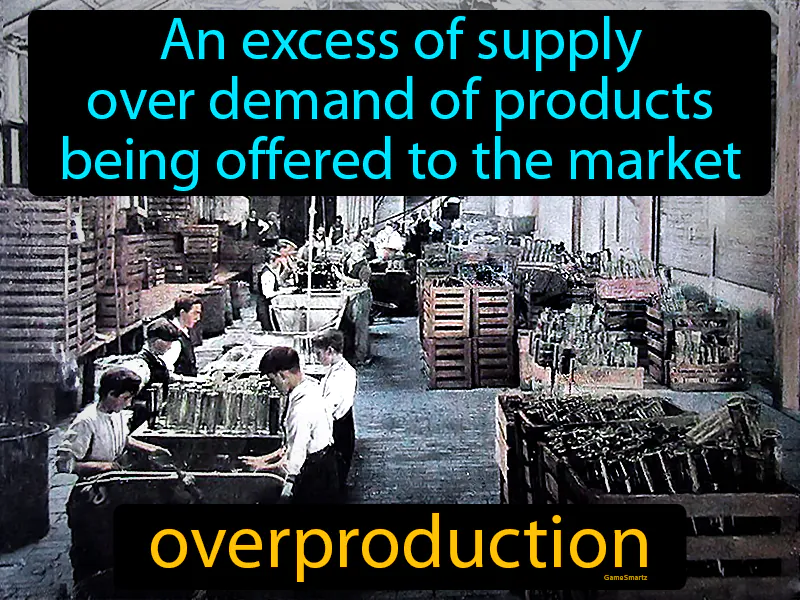Overproduction
Overproduction:
During the period between 1919 and 1939, overproduction contributed to economic instability, leading to the Great Depression, which created conditions that allowed totalitarian regimes to rise in countries like Germany and Italy. Factories produced more goods than the market could absorb, causing prices to drop and businesses to fail, which increased unemployment and social unrest. This economic turmoil made people desperate for solutions, allowing leaders like Hitler and Mussolini to gain support by promising economic recovery and national strength. Today, overproduction can still impact us through waste and environmental harm, such as when too much food is produced but not consumed, leading to food waste and contributing to climate change. For instance, grocery stores sometimes order more produce than needed, which can result in spoilage and unnecessary environmental strain, reminding us to be mindful of consumption and sustainability.

Practice Version

Overproduction: An excess of supply over demand of products being offered to the market. overproduction. In history, overproduction often led to economic downturns when products couldn't be sold, causing prices to drop and businesses to struggle.
